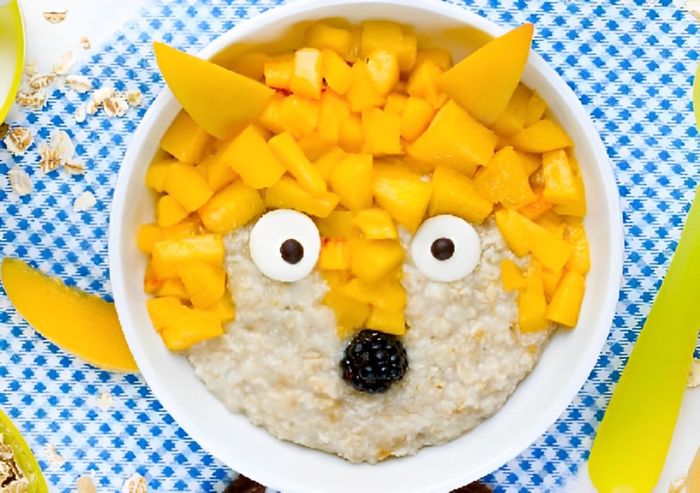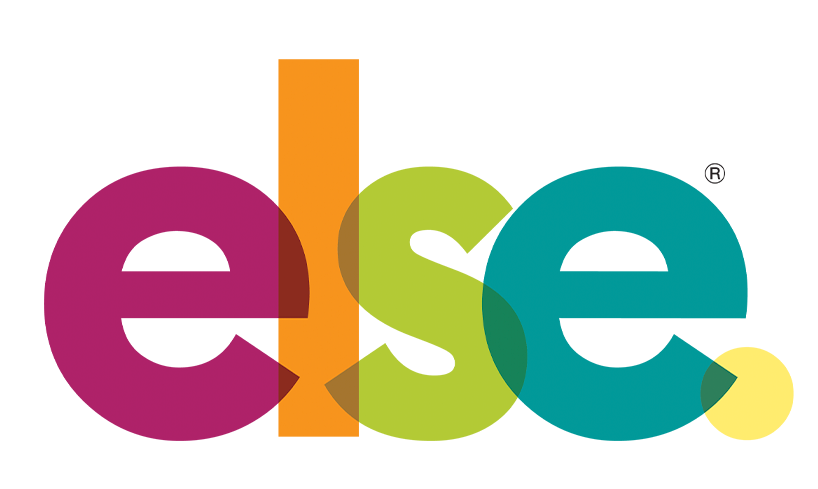Is Rice Cereal Safe for Babies? Potential Downsides and Healthier Alternative
Rice cereal for babies may pose health risks. Learn about healthier options for your baby's diet.
Updated May 8, 2024.

In this article
Popularity of Rice Cereal
Downsides of Rice Cereal
What Can I Use Instead of Rice Cereal?
Why Choose Else Nutrition Baby Cereal?
Show More
For a long time, rice cereal has been the go-to option for parents introducing solid foods to their babies. However, recent studies have raised concerns about the benefits of rice cereal for babies. But don't worry, there are many other alternatives available that you can consider if you want to switch things up.
Popularity of Rice Cereal
Rice cereal has been a standard food for babies for generations. This is because rice is easy for little tummies to digest, is naturally gluten-free and low risk for triggering an allergic reaction, and is generally very well tolerated as a first solid food. Rice has a neutral, bland flavor that isn’t offensive to most babies, encouraging solid food acceptance.
Rice cereal is also an affordable and nutrient-dense food for infants transitioning to solids.
Downsides of Rice Cereal
A closer look into baby foods, including rice cereal and rice-containing products like rusks and puffs, has encouraged many parents to choose alternative first foods for their babies.
The biggest reason is that rice naturally contains arsenic due to how it’s grown. Arsenic is a naturally occurring heavy metal widely present in the earth's crust, which means it’s often found in the soil where rice is grown.
Why is arsenic problematic?
Arsenic is a known carcinogen or cancer-causing agent in humans, which can also negatively impact immunity and increase the risk for numerous diseases. Due to the small physical size of babies, ingestion of arsenic can be more concerning if it is in large amounts. Additionally, infants have a higher rice intake compared to adults, which can lead to increased exposure to arsenic.
Of course, rice isn’t the only arsenic-containing food. Other fruits, vegetables, and plant foods are also exposed to arsenic, but rice is particularly susceptible to absorbing it. This is because rice is grown in a paddy or a small flooded field, so any arsenic in the water supply binds to the rice as it grows and accumulates.
It's worth noting that the amount of arsenic present in soil differs from place to place. This means that certain regions have less arsenic in their soil than others. For example, studies suggest that white Basmati rice or sushi rice bought from California, India, or Pakistan are less likely to contain significant amounts of arsenic.
Managing Arsenic in Baby Foods
You can prepare rice grains in ways that help reduce arsenic content before serving it, by rinsing before cooking, boiling it in more water than is needed (like you boil pasta), and draining the excess liquid. Unfortunately, there’s no way for parents to control how much arsenic is in rice-containing baby products like teething biscuits, puffs, and infant rice cereal.
Overall, according to the US Food and Drug Administration, rice-containing baby foods are considered a significant source of inorganic arsenic in the diet, and their ingestion should be monitored.
Despite the concern over the arsenic content of rice, don’t let this cause you panic as you begin transitioning your baby to solid foods. If you’ve been offering rice cereal, or you’d like to incorporate it as a first food, the most important thing is that it’s not the only food you’re relying on. Awareness of how much rice your baby is ingesting is most important, as is keeping it to a minimal level.
What Can I Use Instead of Rice Cereal?
If your baby doesn’t like rice or you’d prefer to use something else, rest assured that there are plenty of alternatives to rice cereal. In addition to rice-free infant cereals, first foods can also be a wide variety of fruits, vegetables, and other foods offered in age-appropriate form and consistency. When it comes to alternatives for rice cereal, Else Nutrition offers a fantastic option with its baby cereal products.
Why Choose Else Nutrition Baby Cereal?
Else Nutrition's baby cereal is a nutritious and wholesome alternative to traditional rice cereal and is made using a blend of organic, plant-based ingredients that cater to your baby's nutritional needs. This cereal is crafted with care to provide optimal nourishment during the crucial stages of infant development. It's worth noting that this is the first baby cereal in the U.S. to receive the Clean Label Project Purity Award.
Clean Label Project Purity Award evaluates products for harmful substances not listed on labels, like chemicals of concern and toxins (e.g., heavy metals, pesticides, plasticizers) that may harm health.
Plant-Based Goodness
One of the standout features of Else Nutrition baby cereal is its plant-based composition. Made from a unique blend of almonds, tapioca, and buckwheat, this cereal provides essential nutrients without the need for rice or other grains. This plant-based formula is gentle on little tummies and offers a nutrient-rich alternative to traditional cereal options.
Whether you're spoon-feeding your baby or transitioning to finger foods, Else Nutrition baby cereal is a versatile option that adapts to your baby's changing needs. It can be easily mixed with breast milk, formula, or water to create a smooth, creamy consistency that's perfect for early feeding experiences. Plus, its convenient packaging makes it ideal for on-the-go nourishment whenever and wherever you need it.
Other Alternatives to Rice Cereal
Looking for an alternative to rice cereal for babies? No worries. Rice is not the only cereal available.
Several popular alternatives to infant rice cereal include oat cereal, barley cereal, quinoa cereal, almonds and buckwheat cereal, and multigrain cereal. Some baby cereals may contain a combination of these grains or even a grain with a fruit and/or vegetable added to it. The most important consideration when choosing alternative baby cereals is whether they have been fortified with essential nutrients, particularly iron. Iron is crucial for babies as it aids in cognitive development and helps prevent anemia.
Not all infant cereals contain added iron, which may be an otherwise more challenging nutrient to make sure your baby gets enough of when transitioning to solids. Look for packaging that states it is iron-fortified, or check the nutrition facts panel to determine whether it contains iron.
The Takeaway
As parents seek the best for their little ones, it's crucial to reevaluate traditional feeding practices like rice cereal. With its potential downsides, such as arsenic exposure and limited nutritional value, exploring healthier alternatives becomes imperative.
Fortunately, there are plenty of alternatives to rice cereal, including iron-fortified baby cereals made from other grains, like oats, quinoa, buckwheat, and barley. If you incorporate some rice cereal into your baby’s diet, that’s okay. Just be sure that rice is not the dominant food being offered, and instead, prioritize exposing your baby to other healthy, nutrient-dense, and lower-risk foods as they transition to solids.
Else Nutrition baby cereal emerges as a beacon of nutritional excellence, offering a plant-based, nutrient-rich option that supports optimal growth and development. Embrace the future of baby feeding with Else Nutrition and nourish your child with the goodness they deserve.
The content and advice provided in this article is for informational purposes only and is not a substitute for medical diagnosis, treatment, advice for specific medical conditions. Always consult a pediatrician to understand the individual needs of your child.




